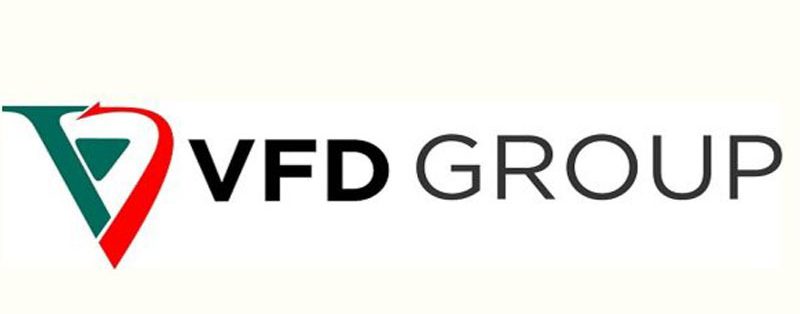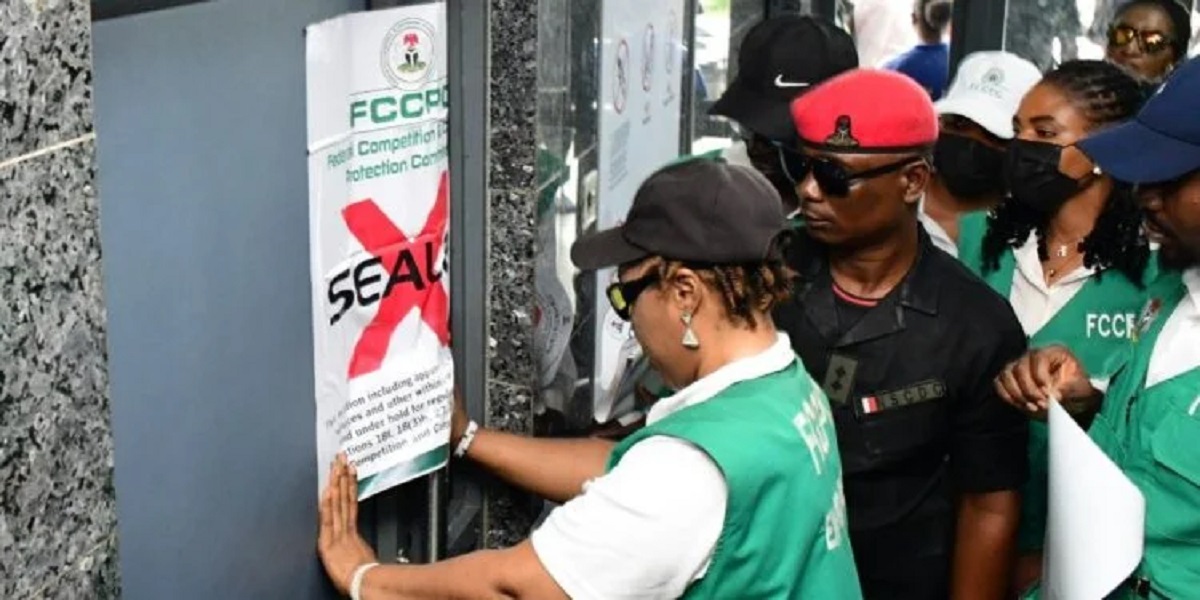News
VFD Group Plans IPO on the NSE in 2022

VFD Group, a proprietary investor in financial services companies, is targeting a 2022 initial public offering on the Nigerian stock exchange, CEO Nonso Okpala tells The Africa Report.

The Lagos-based company has appointed Kairos Capital to help it seek Nigerian and international investors, says Okpala, who holds about 24% of the company. He plans to keep his stake after the IPO.
VFD, which started operating in 2011, currently trades on the NASD over-the-counter (OTC) exchange, an alternative market for west African securities. It became a public company in January 2019 and pays regular dividends to its shareholder base of more than 60,000. Its investments include a stake of 35% in Abbey Mortgage Bank, a majority stake in Anchoria Asset Management, and a wholly-owned microfinance unit.
The company, which more than doubled its full-year profit in 2019, also owns Everdon Bureau de Change, Dynasty Real Estate and the Transfercorp remittances service. Receipts from a main list IPO, says Okpala, would be used to build the VFD “ecosystem” which aims to provide a full range of financial services for families and businesses.
Mortgages are a key part of the strategy. According to the Centre for Affordable Housing Finance in Africa (CAHF), the number of outstanding mortgages in Nigeria in 2019 was just 113,000.
The ratio of mortgages to GDP at 0.3% was one of the lowest in the world, held back by high interest rates and equity requirements of 20% for mortgage loans. CAHF says that progressive use of credit bureaux by lenders is improving risk management.
Nigeria’s mortgage market remains “very untapped, with huge potential,” notes Okpala. The company’s virtual banking platform is the “key to the whole ecosphere,” he adds. VFD has no exit strategy for its investments. “We don’t buy to sell. We buy to keep the company and integrate it into our platform.” COVID-19 impact
“The COVID-19 pandemic has had no impact on the company’s operating strategy or its IPO plans”, Okpala says.
VFD’s first-quarter profit declined by 75% as the microfinance business was negatively affected by lockdown, with some clients unable to repay their loans.
Depending on the customer’s business, VFD was able to help with logistical advice and equipment purchase, Okpala says. For businesses that weren’t able to adapt, loans were suspended and rescheduled, with moratoriums being granted for the duration of lockdown. When a company can’t pay, “it’s best to structure the business so that it continues to exist.”
The company’s V digital banking application launched at the start of March drew more users as people needed to find a way to carry out virtual banking during lockdown, he says. VFD itself was able to save on a planned office expansion which it realised was no longer necessary. It now gives employees the option to work remotely.
“Productivity has increased” as a result meaning “a double advantage,” adds Okpala. The pandemic “has taught us a lot about the running of the company in a cost-effective manner.”
The company, which has a stake in the Atiat vehicle and equipment leasing business, is considering branching out into non-core financial services businesses such as auto purchase. It is also studying expansion into foreign markets such as Ghana.
In the process, Okpala hopes that VFD will break with what he calls Nigeria’s tradition of “one-man businesses. We want an institutional strategy. Patient capital needs an institutional process.”
News
DBN Awards N13m in Grants to Tech Startups

Development Bank of Nigeria (DBN) has awarded a total of N13 million in grants to three standout tech startups at the 2025 Techpreneur Summit held in Lagos, reinforcing its commitment to innovation and inclusive growth among Nigeria’s micro, small, and medium enterprises (MSMEs).

The winners include: BuyScrap, a digital marketplace for recyclable materials – N6 million; Qiqi Farms, which connects local farmers to hospitality and export markets – N4 million; Eco-Cyclers, a youth-led recycling initiative based in Enugu – N3 million
Alongside the grant awards, DBN also launched a new digital data asset, a first-of-its-kind platform aimed at enabling data-driven decisions within the MSME ecosystem.
The platform offers deep insights into business trends, sector-specific challenges, and growth opportunities—supporting smarter policymaking and targeted investments.
In his keynote address in Lagos, Tony Okpanachi, managing director/ CEO, DBN, described the event’s theme, “CTRL + SHIFT: Tech Empowered Movement for Naija,” as a strategic call to reimagine enterprise development in Nigeria.
“This isn’t just a keyboard shortcut,” he said. “It’s a mindset reset—powered by technology—to build a more inclusive, innovative, and resilient business landscape. From financing to innovation, DBN remains committed to enabling MSMEs to thrive.”
Okpanachi emphasized that the Summit aligns with DBN’s AMPLIFI Strategy, which integrates digital transformation, sustainability, and scalability into its core programs.
He highlighted initiatives such as the Digital Shift Workshops and the Eco-Innovation Challenge as key steps toward embedding innovation in Nigeria’s MSME sector.
Encouraging young innovators, he added: “The future belongs to those bold enough to imagine and build it. DBN is proud to support the ideas that will shape tomorrow.”
A major highlight was the unveiling of the DBN Data Asset—a digital platform designed to provide real-time, evidence-based insights into Nigeria’s MSME landscape.
The platform combines DBN’s proprietary data with external sources like the National Bureau of Statistics (NBS) to offer a comprehensive view of MSME performance by region and sector.
Jeremy Dan Okayi, DBN’s Head of Strategy, Policy & Innovation, described the platform as: “A reservoir of insight, potential, and direction—built on two years of collaboration and shared vision. This tool will support informed decision-making across the public and private sectors.”
News
FCCPC Shuts France, Belgium, and Italy Visa Centres in Abuja Over Alleged Consumer Rights Violations

In a bold enforcement action, the Federal Competition and Consumer Protection Commission (FCCPC), supported by the Nigeria Police Force and the Nigeria Security and Civil Defence Corps (NSCDC), has sealed off the visa application centres of France, Belgium, and Italy in Abuja over alleged consumer protection breaches and obstruction of regulatory investigations.

The affected centres—located at Mukhtar El-Yakub House in the Central Business District and operated by TLS Contact, a Teleperformance Company—were shut down following reports that they refused to accept formal correspondence from the FCCPC regarding a consumer complaint. The Commission cited further infractions, including obstruction of investigation and alleged assault of its officers during lawful duties.
Speaking to journalists at the scene, Mrs. Boladale Adeyinka, Director of Surveillance and Investigations at the FCCPC, explained: “This is an enforcement operation against TLS. On March 25, 2025, we served them a letter to address a consumer complaint, which they refused to accept. Instead, TLS officers assaulted our team, and in a subsequent visit on June 17, they also allegedly assaulted uniformed police officers.”
Citing Section 33 of the Federal Competition and Consumer Protection Act (FCCPA), Mrs. Adeyinka emphasized that failure to comply with Commission directives constitutes a criminal offense, punishable by imprisonment, fines of up to ₦20 million, or both.
TLS has been ordered to appear before the Commission on June 20, 2025, to provide testimony, submit evidence, and make formal depositions. The company may be held liable for any financial losses suffered by applicants due to the disruption of visa services.
Despite multiple requests for comment, management at TLS Contact declined to respond as of press time.
News
How and Why N210 Trillion is Missing in NNPCL – CFO

Adedapo Segun, chief financial officer (CFO), Nigerian National Petroleum Company Limited (NNPC), has explained why there is a missing sum of N210 trillion in the company’s audited financial statement spanning from 2017 to 2023.

According to Segun, the missing funds are cash calls requested by joint venture (JV) partners and settlement to the JVs.
He spokeat a session of the Senate Committee on Public Accounts chaired by Aliyu Wadada.
Segun was responding to an alarm raised by the committee over missing N210 trillion in NNPCL’s audited financial statement.
Recall that Wadada issued a one-week ultimatum to NNPCL to account for the missing N210 trillion.
Reacting, Segun said, “The N103 trillion and N107 trillion are made up of joint venture cash calls that have been requested by the JV operators and JV cash call payments made by NNPCL, which are yet to be reconciled because governance procedures were not done at that time.
“That is why you see the description reflecting those two items would be washed out because they are two sides of the same transaction, which is the cash calls by JV partners and the settlement by NNPCL.”
However, Habu Sadeik, a financial analyst, in a post on X on Thursday, said Segun’s response was unsatisfactory.
Saidik faulted NNPCL’s response about the fund discrepancies, noting that something is not right with the audited financial statement.
“Forget about the senators’ lack of knowledge.
“The CFO’s response is not satisfactory. Are you saying that cash calls worth hundreds of trillions are just appearing on your FS only in 2024 without 31 disclosure?
“If it’s a cash call, why hasn’t the disclosure said so?
“Which cash call is over 100 trillion?
“Something is definitely not right, and I hope they retrospectively correct that FS.
“Someone somewhere did a chef’s work,” he wrote on X.

 General News3 days ago
General News3 days agoNASRDA, Galaxy Space Firm Sign MoU on Satellite Connectivity

 Telecom3 days ago
Telecom3 days agoOver 1m Nigerians Reached through MTN Staff’s Digital and Community Outreach

 Telecom3 days ago
Telecom3 days agoMafab Gets 0724 Number Series, Launches Mcom 5G Brand

 News3 days ago
News3 days agoDBN Awards N13m in Grants to Tech Startups

 Telecom3 days ago
Telecom3 days agoNCC to Name, Shame Telecom Infrastructure Vandals

 News3 days ago
News3 days agoFCCPC Shuts France, Belgium, and Italy Visa Centres in Abuja Over Alleged Consumer Rights Violations

 Telecom3 days ago
Telecom3 days agoWSIS Review: Nigerian ICT Leaders Urged to Shape Global Digital Future

 E-Financial3 days ago
E-Financial3 days agoBank Customers Petition CBN over Illegal Deductions, Demand Action


























